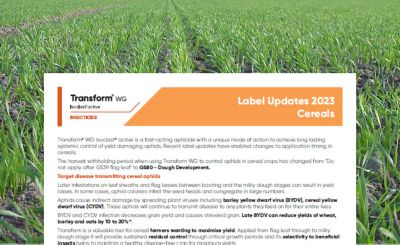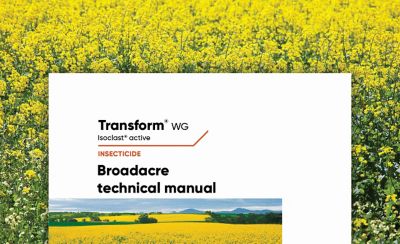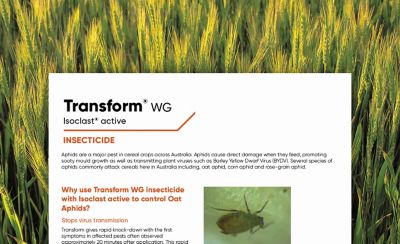He said the new label meant Transform® WG could be used up to 14 days prior to harvest.
“Growers should monitor their crops and look for early flights of pests. Go early and try and knock down the numbers before they get a chance to do damage.”
“You can apply one Transform for aphids before you apply a different mode of action. If need be, you can go back with the second Transform, but you need a breaker in the middle.”
Transform is used over a range of broadacre and horticultural crops and has been tank mixed with a wide variety of fungicides, insecticides and foliar nutrients.
“We've never seen any incompatibilities with other products,” Mr Brown said. “You can be very confident when mixing Transform and other products.”
He said Transform could also be used as part of an Integrated Pest Management program as it was quite soft on key beneficials in crops.
“Beneficial insects provide almost another spray if you can maintain their population. Transform can knock out the initial populations of aphids and, then hopefully, the beneficials will build to a number where they can prevent further spraying.”
This year Transform was also registered to control aphids in forage brassicas. While it controls sucking insects, it can be paired with Success Neo which takes out Diamondback moth and Heliothis.
The ability to add Transform to Success Neo gives growers a broad-spectrum range of products to take out serious pests in forage brassicas while maintaining beneficial insects.
It gets them away from the older, more resistant harsher chemistry they've used in the past.



